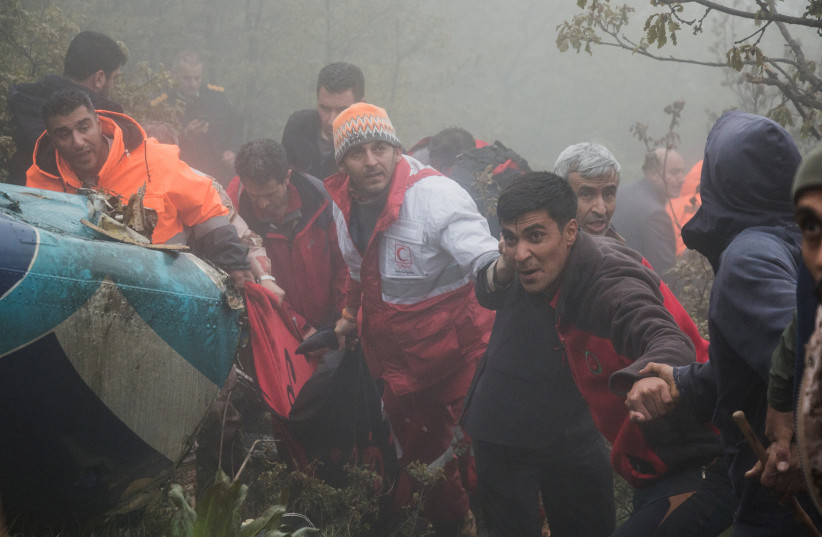The United States stated on Monday night that it had not succeeded, primarily for logistical reasons, to respond to Iran's request for assistance to help rescue President Ebrahim Raisi's helicopter. Washington also expressed condolences for the death of Raisi, who was called the "Hangman from Tehran" for his role in the killings of regime opponents.
This rare request from the Islamic Republic, which called the United States "the Great Satan," was revealed by the State Department in Washington.
"We were asked for assistance by the government of Iran. We clarified to them that we will assist, as we do in response to any request from a foreign government in such a situation," spokesperson Matt Miller told reporters. "In the end, primarily for logistical reasons, we were unable to provide that assistance," Miller said, without elaborating.
However, the White House emphasized that Raisi was responsible for Iran's support for "terror networks throughout the region" and that he had "a lot of blood on his hands."
Iran did not respond to the American announcement, which may embarrass the Islamic Republic at a sensitive time. Alongside Raisi, who was marked as a possible successor to Supreme Leader Ali Khamenei, Foreign Minister Hossein Amirabdollahian and six other passengers and crew members were killed in the helicopter crash on a mountain near the town of Tavil in Iran.
Blaming Washington

The Iranian army ordered an investigation into the circumstances of the helicopter crash, a Bell 212 model manufactured by the United States, in the mountains near the Azerbaijani border, where Raisi visited before his final departure. Tehran maintained a fleet of old planes and helicopters from the Shah era and struggled to find replacement parts due to American sanctions.
Some in Iran blamed Washington for the accident.
"The United States had no part in the crash," said US Defense Secretary Lloyd Austin when asked if he feared Tehran might blame Washington. "I can't speculate on what the cause might have been," he added.
Although Raisi's visit coincided with the conflict between Israel and Hamas in Gaza and Hezbollah in southern Lebanon - two terrorist organizations supported by Iran - Austin did not anticipate immediate security implications for the Middle East following the crash. "I don't necessarily see a broader regional security impact at this stage," Austin said.
Under the Islamic Republic's constitution, new presidential elections must be held within 50 days, and Raisi's temporary replacement is his first deputy, Mohammad Mokhber. Nevertheless, the ultimate authority in Iran's foreign, security and nuclear policy is 85-year-old Khamenei, and Iranian presidents are largely seen as figureheads in the regime's facade of democracy.
